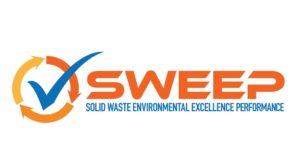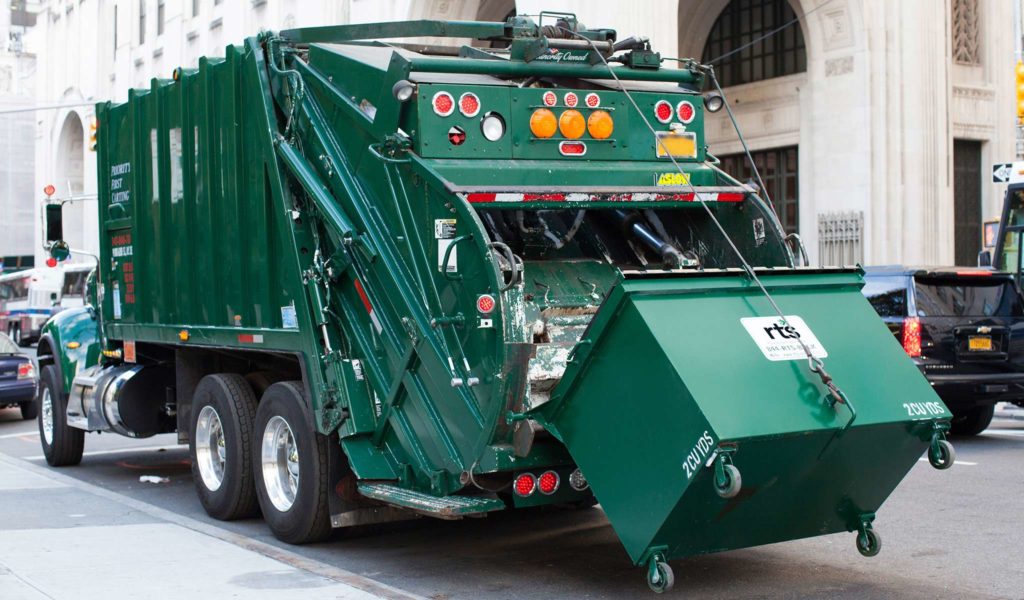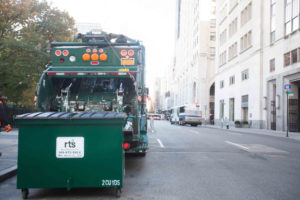Over the past few years, awareness around the importance of waste diversion, recycling, and sustainability has increased dramatically.
However, around half of the municipal solid waste (MSW) produced in the US still ends up in landfill. In fact, in 2018, just 32.1% of MSW was either recycled or composted, and with around 292.4 million tons of MSW produced in the US every year, this is fast becoming a serious issue.
Improving accountability in waste solutions is an important part of boosting commercial sustainability and reducing the amount of MSW that goes to landfill. Not only does improved accountability help to ensure that waste is recycled, reused, or responsibly disposed of, but it also helps businesses to achieve their sustainability or zero-waste goals.
If you’re responsible for arranging commercial waste removal, asking a few simple questions of your service provider can help to ensure your compostable, recyclable, and non-recyclable waste ends up in the right place and allow you to work towards reducing waste across your entire business.
Having said this, finding the right waste service provider is not always a simple task. In the US, the industry is both fragmented and challenging to regulate, creating a landscape where businesses are all too often left with sub-standard waste management solutions that have the potential to impact both the environment and your ability to meet local and national regulations.
So, to help you navigate the world of waste management and choose the right waste management service for your business needs, here, we look at the essential questions to ask your existing or prospective waste service provider.
Where Does My Waste Go?
One of the most important questions to ask a waste management company is where your waste goes. Currently, around 75% of the waste we produce can be avoided, recycled or reused. Waste providers that place sustainability at the heart of their operations will be able to work with you to divert any waste that can be recycled, composted, or reused away from landfill.
For example, food waste – which currently accounts for around 40 million tons of the waste produced in the US – can be processed for compost, used to feed animals, or tuned into other bio-products. In fact, with the right waste management provider, edible food can even be donated before it makes it into the waste stream.
Similarly, e-waste can be recycled, reused, and circled back into the economy, while paper, metal, glass, and plastic can all be easily recycled. Subsequently, asking your service provider where exactly your waste streams end up (and receiving a suitably comprehensive answer) should give you a clearer idea of how sustainable its solutions really are.
What Data or Tracking Can You Provide?
Receiving detailed and accurate data or tracking information on your collections can help your company to further streamline its operations and minimize the amount of waste produced. Tracking information might include notifications on when a pickup will take place or data on where your waste ends up and how much is diverted. Your provider might also send you ‘Certificates of Destruction’ to verify responsible recycling has taken place.
Understanding exactly how much of your waste is diverted from landfill can help to encourage and inform your corporate sustainability programs. This can give your team the data it needs to make greener choices and reduce the environmental impact of your business.
What Types of Waste Removal Schedules Do You Offer?
Another thing you’ll need to know is the types of removal schedules on offer. If your waste service provider has set pick up times, this may leave waste piling up at your premises, potentially creating several aesthetic and environmental issues.
However, if your waste service provider offers a personalized collection schedule, your waste will be removed before it can cause a problem. In addition to this, some waste service providers offer ‘ on demand’ collection services—a flexible option that allows you to arrange pickups whenever your business needs them. Finding a waste company that offers the best of both worlds provides you with solutions that integrate seamlessly with your commercial operations.
What is Included in Waste Pickup?
It’s important to understand exactly what’s included in the waste pickups offered by your chosen supplier. While some providers will simply collect and dispose of the waste your business generates, others will include waste diversion reporting, staff training, sustainability education and even LEED waste audits as part of the service.
Choosing a waste service provider that offers more than just refuse collection can help to improve corporate sustainability and give your team the resources it needs to hit your green goals. Additionally, it can also help you build a framework for the eventual reduction and elimination of waste materials generated by your business.
What Types of Disposal Units Do You Provide?
When it comes to disposal units, one size definitely doesn’t fit all. Dumpsters can range from small 32-gallon totes designed for organic waste to 40-yard open top containers ideal for large projects and major overhauls. Ask your waste service provider about the options they offer to ensure they have a solution that perfectly suits your requirements.
Are You Registered with the Environmental Protection Agency?
Registering with the Environmental Protection Agency (EPA) demonstrates that your chosen waste service provider adheres to the current rules and regulations relating to waste disposal and recycling. The EPA enforces a number of measures designed to reduce the amount of waste produced in the US and to help clean up any waste or harmful substances that can cause pollution. These regulations are outlined in the Resource Conservation and Recovery Act (RCRA).
What Areas Do You Serve?
This is probably one of the most important questions to ask on a practical level. Choosing a waste service provider that operates in your area will ensure you benefit from all services on offer. Additionally, as in the case of the latest legislation in New York, you may find that your area is ONLY served by a limited number of providers.
If this is the case, then choosing from a limited pool means you should pay extra attention to the different services each provider offers in order to find a solution that fits your needs and helps push your sustainable metrics further.
What Industries Do You Serve?
Different industries require different waste management solutions. While grocery stores and restaurants will primarily deal in food waste, schools, universities and municipalities will have very different requirements. These can range from the handling of hazardous waste to the flexible and fast processing of edible food waste for donation.
Selecting a specialist service provider will offer you a smarter approach to waste disposal and could help you to improve sustainability in your business. Additionally, service providers with experience and existing networks within those sectors will allow you to explore forward-thinking solutions to reusing materials that may otherwise go to waste.

Source: zerowaste.com
What Other Services Do You Offer?
Finding a provider that offers a range of services can give you a more comprehensive waste management solution. For example, a service provider that offers technological support, staff training and education and zero waste services, as well as general collections, can significantly boost the sustainability of your business.
This can be something as simple as an initial assessment of your waste generation or something as complex as a tailor-made waste reduction plan for large events. A range of services that look towards sustainable waste management indicate your provider is taking a committed and comprehensive approach to sustainability.

Source: rts.com
What Other Environmental or Sustainability Certifications Do You Hold?
There are several national and international sustainability and environmental programs that waste service providers can sign up to. One of the best known is B Lab, an international movement that promotes and adheres to ‘high standards of social and environmental performance, accountability and transparency’.
Businesses, including waste service providers, that meet these high standards can be certified as B Corporations. RTS was recently named B Corporation Best For the World Environment Honoree.
An environmentally conscious waste service provider might also hold SWEEP certification. Developed by one of the founders of LEED, SWEEP aims to improve the solid waste management process for municipal waste. The goal of the scheme is to raise environmental standards for municipal waste programs and the service providers that support them.
What Credentials Do Your Staff Hold?
If a waste service provider’s staff hold sustainability credentials, they’re much more likely to understand your business’ environmental goals and have the skills required to advise and aid you on your green journey. Credentials to look out for include LEED and TRUE certification.
Both programs require participants to undergo sustainability training. TRUE certification is geared towards companies looking to achieve a zerowaste approach and looks at the flow of materials through our existing economy. LEED accreditation, on the other hand, focuses on improving sustainability and maximizing efficiency in offices, homes, and commercials space.
Choosing a smarter, more waste-conscious service provider can give companies the resources, expertise and training they need not only to meet their sustainability goals, but also to measure their progress and streamline their operations.
Contact our TRUE advisors today to arrange a free waste assessment, to learn more about our services or to discuss the needs of your business in 2022.








